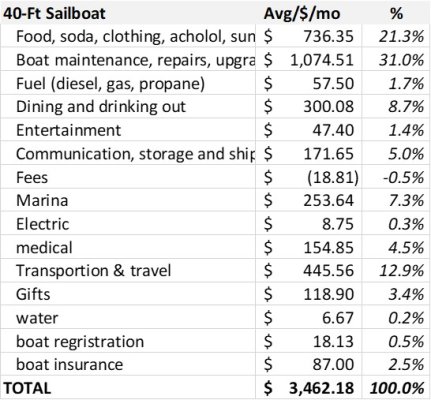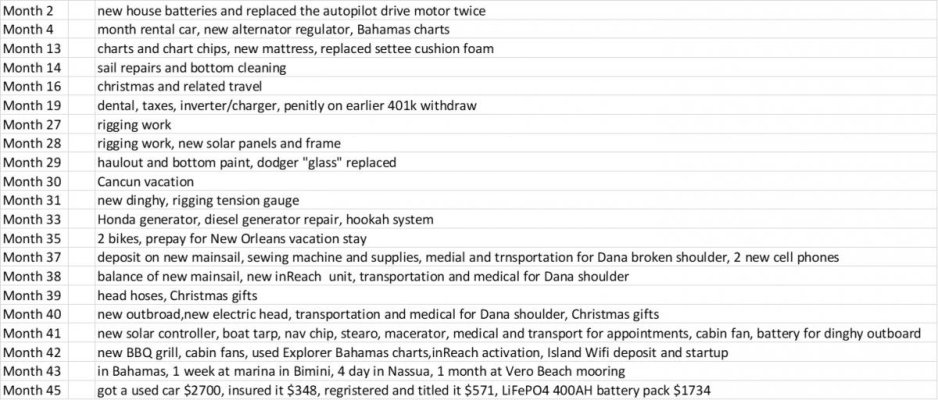Ranger59
Newbie
Hi Folks, New Member here
We're hoping to buy a trawler to live on at least 3 months a year in the Warm Caribbean/Bahamas. We're from the North East US.
Looking for advice on how to plan an annual budget. ASIDE from the cost of fuel, what should I budget for. The Brokers say 10% of purchase price but that's too vague for me.
Assumptions: Dockage for 6 Months year, Haul out once a year, No Crew, Am basic handy (can do most usual boat repairs, some engine maintenance like fluid changes etc)
Is there any spread sheet or resource out there to help plan a budget?
Thanks!
We're hoping to buy a trawler to live on at least 3 months a year in the Warm Caribbean/Bahamas. We're from the North East US.
Looking for advice on how to plan an annual budget. ASIDE from the cost of fuel, what should I budget for. The Brokers say 10% of purchase price but that's too vague for me.
Assumptions: Dockage for 6 Months year, Haul out once a year, No Crew, Am basic handy (can do most usual boat repairs, some engine maintenance like fluid changes etc)
Is there any spread sheet or resource out there to help plan a budget?
Thanks!





